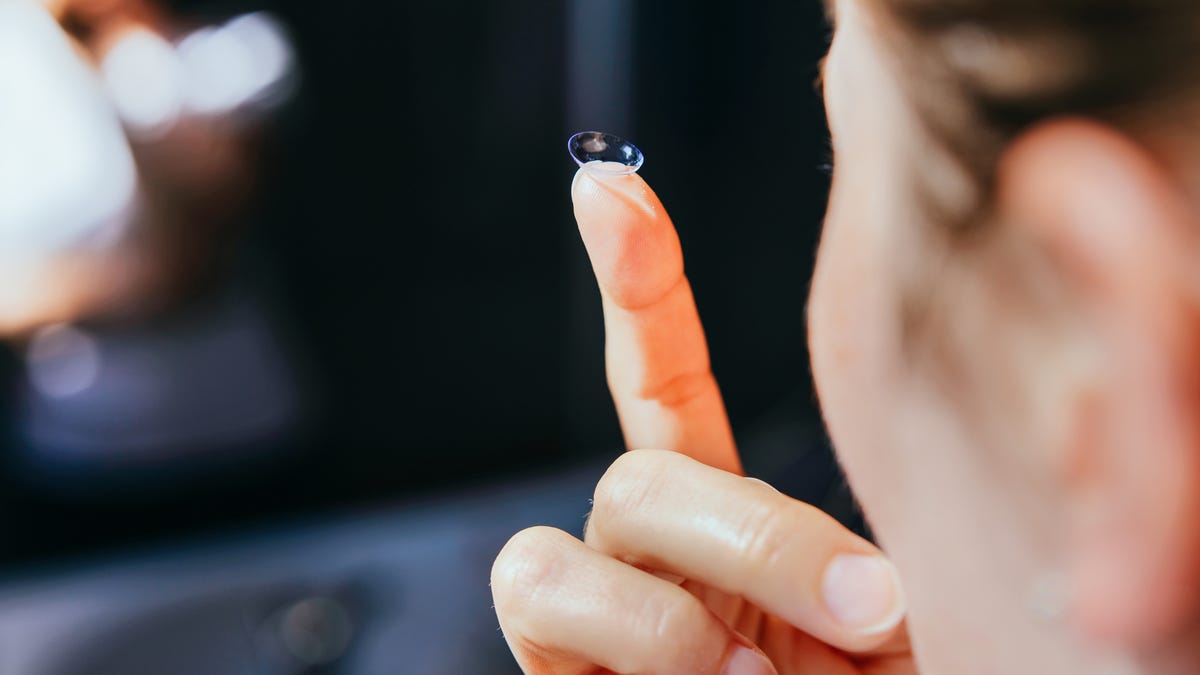 Why You Can Trust CNET
Why You Can Trust CNET Don't Gamble with Your Eyes: Why Wearing Expired Contacts Can Be Dangerous
Using expires contacts can put your eye health at risk. Here's what to know.

Using expired contact lenses puts your eye health at more risk than you would think.
Many of us have been guilty of sleeping with contacts in, not properly washing your hands before inserting them or worse: reusing them day after day and even well past their expiry date. You may think you're saving money by extending the life of the contacts, but this may be more unhygienic than you realize.
If you aren't sure if you're holding onto expired contact lenses, look at the month and year printed on the box or pack. For example, if it reads 06/23 on the box that means the contacts are OK to use until the end of June 2023. If you use it any month later you are putting your eyes at risk of infection or worse.
If you are wearing expired contact lenses, some red flags you should look out for include: initial burning, stinging and redness. "If you experience any of these symptoms, you should immediately remove the contacts and use preservative-free artificial tears," said Dr. Yuna Rapoport, an ophthalmologist at Manhattan Eye. She discussed with CNET the side effects of using expired contact lenses and why you should throw them out sooner rather than later.
Infections are a bigger risk
If you have expired contacts laying around, one of the things you may not be aware of is that even though they're sealed, the solution may no longer be good. There is a higher health risk to using expired contacts or repurposing dailies that are designed to be discarded after a single use.
Expired solution in contact lenses can harbor bacteria and fungus, which can put you at risk for infections like bacterial keratitis. This infection affects your cornea and can result in eye redness, sensitivity to light, pain and blurred vision, to name a few symptoms.
"The cornea gets its nutrients from the oxygen in front of it, so if the infection is small and in the periphery it may not cause permanent damage," Rapoport explained. However, she points out that it's more serious if it is a central infection. "This can scar, lead to irregular astigmatism and poor vision, and if it's bad enough, a patient may have permanent vision loss or need a corneal transplant," she warned.
The prescription may be outdated
Keep in mind, contact lenses usually expire after a year, which is why you have to get a new prescription annually if you plan on continuing to wear them. But if your prescription has changed and you're using expired contacts, it can lead to blurry vision, eye strain and fatigue. Instead, make sure you're scheduling eye exams annually to make sure your eye prescription hasn't changed and to get appropriately fitted for contact lenses. Another thing to know is that your glasses and contact lens prescription are not the same, so don't think you can get away with just the one.
Additionally, if you're wearing an old contact lens prescription, chances are you're straining your eyes and causing them to work harder than they need to. This type of straining can lead to headaches, which can keep you from concentrating at work or school. It's even worse if you have presbyopia or longsightedness, which occurs as we get older and is when the eye loses its ability to change its focus to see things that are nearby. Make sure you're always wearing the right prescription whether you opt for contact lenses or glasses.
Dry eyes are more likely
Besides the other risks involved when using expired contact lenses, you'll also increase your chances of dry eyes. Contacts lose permeability over time, so if you're using expired lenses, your eyes will feel less moist due to the lack of oxygen to the eyes. Dry eyes don't seem like a big deal, but your eyes need tears to protect them from getting an infection.
The drier your eye is while wearing expired contacts, the higher the chances you're putting your cornea at risk of an infection. Therefore, patients with existing dry eye or other corneal conditions are at greater risk.
"Using expired contacts puts you at risk of corneal ulcers, infections, keratitis, and inflammation," warned Rapaport. "I do not recommend trying to extend the life of contacts, so they should be discarded accordingly," she added. Lastly, she advises that the most hygienic way to use contacts is to wash your hands immediately before putting them in, and putting in a lubricating drop before putting a contact in and before removing it.

